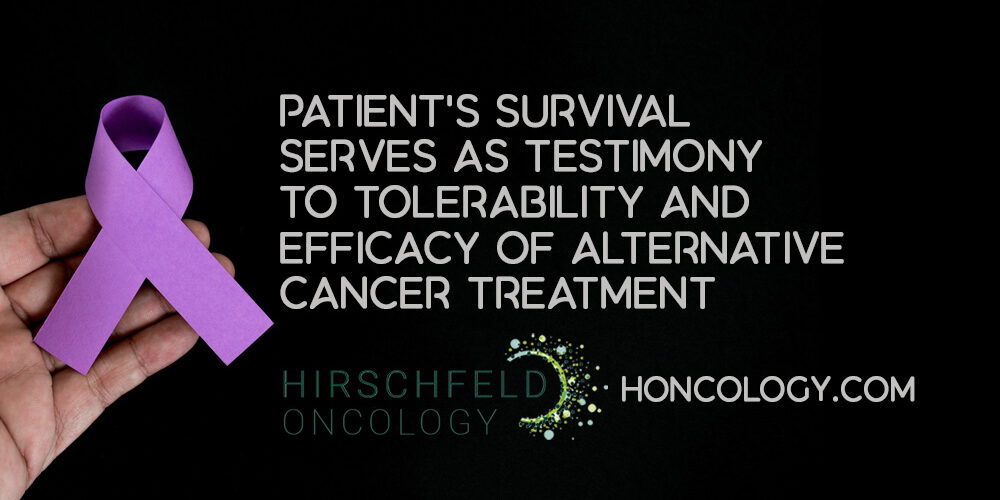Understanding the Importance of Quality of Life in Cancer Care
Defining Quality of Life (QoL) in Cancer Patients
Quality of Life (QoL) in cancer patients refers to the overall well-being and daily functioning affected by the disease and its treatments. It encompasses how patients physically, emotionally, socially, and mentally experience their health status.
Significance of QoL Assessment During Cancer Treatment
Assessing QoL during treatment is vital as it reflects treatment effectiveness and helps tailor care to individual needs. Monitoring QoL aids healthcare teams in addressing symptoms like pain and fatigue, enhancing patient comfort and adherence to therapy.
Multidimensional Aspects of Health-Related Quality of Life (HRQoL)
HRQoL covers various domains: physical functioning, emotional well-being, social interactions, and behavioral health. Cancer impacts all these facets, making comprehensive evaluation necessary to support patients holistically.
Tools Used for QoL Measurement
One internationally validated tool is the European Organization for Research and Treatment of Cancer Quality of Life Questionnaire Core 30 (EORTC QLQ-C30). This questionnaire assesses symptoms, functioning, and overall health status, providing reliable data to guide clinical decisions and improve patient outcomes.
Physical Symptom Management: Addressing Pain, Fatigue, and Nutrition
How do physical symptoms affect cancer patients' quality of life and what management strategies are effective?
Physical symptoms such as pain, fatigue, nausea, and lymphedema greatly impact the quality of life (QoL) for cancer patients by reducing physical function and causing emotional distress. High pain levels can lead to diminished body performance and worsen emotional well-being, while fatigue affects energy and daily activity.
Effective pain management combines pharmacological treatments, such as opioids for severe pain and non-opioid analgesics for milder pain, with non-pharmacological approaches including acupuncture, physical therapy, and transcutaneous electrical nerve stimulation (TENS). These strategies help control symptoms and improve patients' comfort.
Nutritional support is also crucial. Early malnutrition screening, using validated tools, identifies patients at risk who benefit from personalized dietary counseling and nutritional supplementation. Addressing symptoms like nausea and lymphedema improves treatment tolerance and physical health.
Managing these symptoms requires a multidisciplinary supportive care team involving oncologists, pain specialists, dietitians, physical therapists, and psychosocial care providers. Together, they create tailored plans to relieve symptoms, maintain strength, and support overall well-being throughout cancer treatment.
Psychosocial and Emotional Support: Coping, Mental Health, and Spiritual Care

What psychosocial interventions help improve quality of life for cancer patients?
Psychosocial challenges like depression, anxiety, and distress frequently affect cancer patients, significantly lowering their quality of life. Addressing these through tailored psychological interventions is crucial. Cognitive behavioral therapy and mindfulness-based stress reduction are among the evidence-supported approaches shown to enhance emotional, social, and physical well-being.
Support groups provide patients a platform to share experiences and receive emotional sustenance, reducing feelings of isolation. Open and effective communication with healthcare providers further strengthens coping by enhancing understanding of treatment and managing side effects.
Spiritual care plays an essential role in emotional well-being, helping patients find meaning and hope amid uncertainty. It can alleviate spiritual distress, which otherwise may worsen anxiety and depression. Pastoral support and integrative therapies like meditation and yoga bolster patients’ capacity to manage the psychological burden of illness.
Integrating mental health services—including counseling and psychotherapy—into cancer care plans ensures a holistic approach. Early psychological support, especially for those with early-stage cancer, has a more pronounced impact on quality of life.
Together, these psychosocial and spiritual supports empower patients to maintain resilience, emotional balance, and a more positive outlook during and after treatment, ultimately improving their overall cancer care experience.
Optimizing Chemotherapy and Treatment Adherence through Supportive Care
How does supportive care influence chemotherapy adherence and patient outcomes?
Supportive care plays a crucial role in helping cancer patients adhere to chemotherapy regimens and achieve better outcomes. By managing side effects like pain, fatigue, nausea, and emotional distress, supportive care reduces symptom burden, enabling patients to complete prescribed chemotherapy cycles more effectively (Supportive Care in Cancer, Supportive care during cancer, Supportive care in cancer treatment).
Relationship between chemotherapy cycles and Quality of Life (QoL)
Studies reveal a positive correlation between the number of chemotherapy cycles and improved QoL up to a certain point. Completing three or more cycles often associates with better physical function, emotional well-being, and overall health status. Supportive care ensures side effects are controlled, allowing patients to tolerate treatment better and maintain their quality of life (Chemotherapy cycles and quality of life correlation, Quality of life in cancer care).
Managing side effects to improve adherence
Effective symptom management—through pain control, nutritional support, and psychosocial interventions—minimizes treatment interruptions and dose reductions. For example, addressing cancer pain and fatigue promptly can prevent deterioration in physical and emotional status, encouraging patients to stay on track with their chemotherapy plan (Pain management in oncology, Managing pain and fatigue in cancer care, Psychosocial support during cancer treatment, Supportive care vs palliative care).
Integrating supportive care to reduce unplanned hospitalizations and treatment interruptions
Quality of life (QoL)-focused interventions delivered during intensive treatment phases, especially for aggressive cancers, are linked to fewer unplanned hospital admissions. This comprehensive support stabilizes patients’ conditions, reducing the risk of treatment delays or discontinuation (Psychosocial support during cancer treatment, Improving quality of life in cancer patients, Multidisciplinary supportive care team).
Patient self-efficacy and communication strategies
Supporting patients to understand their treatment, actively communicate concerns to healthcare providers, and manage symptoms empowers them. Enhanced self-efficacy leads to better coping, lowers anxiety, and promotes adherence to therapy (Coping strategies to improve quality of life, Improving patient self-efficacy and communication, shared decision-making in cancer care).
Impact of comprehensive care on treatment outcomes
Multidisciplinary supportive care that combines symptom control, psychosocial support, and patient education contributes to improved clinical outcomes, including increased rates of complete pathological response and potentially longer survival (Multidisciplinary quality of life interventions, Multidisciplinary approach to supportive care, Supportive and Palliative Care Programs).
Together, these components demonstrate that integrated supportive care is fundamental to optimizing chemotherapy adherence and maximizing treatment benefits in cancer care (Supporting strength and stamina during cancer treatment, Improving quality of life in cancer care, integration of digital health technologies in cancer supportive care).
Integrative and Digital Health Approaches to Enhance Patient Well-being

What roles do integrative therapies and digital technologies play in supportive cancer care?
Integrative therapies such as acupuncture, massage, and meditation play an important role in cancer supportive care by alleviating physical symptoms like pain, anxiety, and nausea. These evidence-informed therapies complement traditional cancer treatments and promote relaxation and emotional well-being, thus improving patients' overall quality of life.
On the digital front, health technologies including telehealth, wearables and smartphone applications have expanded the reach and effectiveness of supportive care. Telehealth platforms are increasingly used to deliver psychosocial support, nutritional counseling, and exercise programs remotely, making care more accessible especially for patients facing geographical or mobility challenges.
Combining in-person visits with digital interventions forms hybrid models of care, which have proven effective in enhancing patient engagement and providing personalized support. However, successful implementation requires ensuring secure, user-friendly technology, appropriate training for healthcare providers and patients, and addressing regulatory and privacy considerations.
These integrative and technological approaches together enable a more holistic, patient-centered supportive care system that adapts to evolving patient needs and fosters better management of cancer-related symptoms and emotional health.
The Crucial Role of Multidisciplinary Teams in Personalized Cancer Care
How do multidisciplinary teams contribute to optimizing quality of life for cancer patients?
Multidisciplinary teams play a vital role in enhancing quality of life in cancer patients by addressing the multifaceted challenges of cancer and its treatments. These teams typically include physicians, nurses, dietitians, social workers, chaplains, and mental health professionals, all working collaboratively to provide comprehensive care.
Composition of support teams and collaborative care models
A multidisciplinary supportive care team integrates various specialties: medical experts manage physical symptoms like pain and fatigue; dietitians ensure nutritional support to combat malnutrition common in cancer patients; social workers assist with practical and emotional needs; chaplains provide spiritual care; and mental health professionals address psychological distress. This team-based approach ensures that patient care is holistic and personalized, covering symptom management and psychosocial and spiritual support.
Care coordination and health equity
Effective care coordination among team members is essential to tailor interventions that respond promptly to patient needs and to avoid fragmented care. Equitable access to multidisciplinary supportive services is crucial, especially for underserved populations who may experience disparities in cancer outcomes. Initiatives aim to improve service accessibility to ensure all patients benefit regardless of cancer type, stage, or background, as emphasized in supportive care strategies for promoting health equity.
Importance of regular quality of life (QoL) assessments
Regular assessment of quality of life using validated tools like the EORTC QLQ-C30 enables the team to monitor physical, emotional, and social well-being continually. These QoL assessments guide timely symptom management and psychosocial interventions, facilitating adaptive treatment adjustments that optimize patient comfort and function.
Programs and services offered
Examples of multidisciplinary supportive care services include pain management (using opioids and non-drug therapies), nutritional counseling, psychosocial counseling (individual, group, or via telehealth), spiritual support, and integrative therapies such as acupuncture and meditation. Programs also feature unique offerings like medical marijuana certification and ketamine treatment for mood disorders, enhancing patient-centered care as described in improving quality of life for cancer patients with supportive and palliative care.
Through this coordinated, multidisciplinary approach, cancer patients receive tailored support throughout their treatment journey, leading to improved symptom control, emotional well-being, and overall quality of life.
Enhancing Patient Empowerment and Communication for Better Outcomes

How does patient empowerment and communication impact quality of life during cancer treatment?
Empowering cancer patients with clear, accessible education about their diagnosis and treatment options is fundamental to improving their quality of life (patient-provider treatment goals alignment). Understanding clinical guidelines and potential treatment effects allows patients to engage actively in decisions about their care, aligning treatments with their personal goals and values. This involvement fosters a sense of control and reduces emotional distress.
Open communication among patients, caregivers, and healthcare teams supports transparency and trust. It helps clarify expectations and encourages patients to voice concerns, which can result in timely interventions and better management of symptoms and side effects (improving patient self-efficacy and communication).
Addressing social determinants of health—such as socioeconomic status, cultural background, and access to healthcare resources—is crucial for tailoring personalized care. Recognizing these factors enables providers to overcome barriers that might otherwise compromise treatment effectiveness or patient well-being (patient health-related social needs).
Practical strategies for enhancing communication include teaching patients how to organize their medical information and treatment goals. Tools and resources that simplify complex data empower patients to track their progress, prepare for consultations, and engage in shared decision-making in cancer care confidently.
In summary, patient empowerment and effective communication contribute significantly to improved treatment adherence, reduced anxiety, and better clinical outcomes, ultimately enhancing the overall quality of life during cancer care.
Supporting Survivorship: Transitioning to Life After Treatment

What are post-treatment challenges including residual symptoms, anxiety, and social support changes?
After completing cancer treatment, many patients face ongoing challenges such as residual symptoms like fatigue, pain, and breathing difficulties. Emotional issues, including anxiety and uncertainty about health, also commonly persist. Social support networks may shift or diminish, creating feelings of isolation as patients transition from active treatment to survivorship. For more details, see Coping during cancer treatment and Cancer-related fatigue overview. These challenges are part of addressing health-related social needs in cancer patients.
How do survivorship care plans aid patients?
Survivorship care plans provide a personalized roadmap that details the patient’s cancer history, treatment received, potential late effects, and guidance for ongoing monitoring. These plans support patients in managing health post-treatment and connect them to resources for physical, emotional, and social needs. For comprehensive guidance, refer to Survivorship Care Plan, which emphasizes managing health after cancer and connecting with support resources.
Why are physical activity, nutrition, and mental health support important?
Maintaining a healthy lifestyle is crucial in survivorship. Regular exercise improves strength, endurance, and reduces anxiety and fatigue. Balanced nutrition supports healing, decreases recurrence risk, and helps manage side effects like taste changes. Mental health support, including counseling and mindfulness practices, assists in coping with emotional challenges and sustaining resilience. See Care for your body after cancer treatment and Psychological interventions improve quality of life in cancer patients for detailed information on these coping strategies for cancer.
What role do virtual supportive care programs and community resources play?
Virtual supportive care programs, such as phone or video-based coping skills sessions, offer accessible, scalable support to survivors who may face geographic or mobility barriers. These programs validate patient experiences and teach strategies to manage emotions and health uncertainties through virtual supportive care programs for cancer survivors. Community and peer support groups also provide emotional connection and practical advice, reducing isolation. See more at Virtual supportive care intervention for lung cancer survivors and Psychosocial support during cancer treatment, integral aspects of a multidisciplinary supportive care team.
What strategies help maintain quality of life beyond active cancer treatment?
Survivors benefit from pacing themselves to conserve energy, engaging in enjoyable activities, and maintaining open communication with healthcare providers. Integrating supportive care—including symptom management, psychological support, and social services—into follow-up care fosters ongoing well-being. Setting small goals and focusing on positive daily experiences nurtures hope and mental resilience. Details at Coping strategies to improve quality of life and Supportive Care in Cancer, which emphasize improving quality of life in cancer patients.
Below is a table summarizing survivorship support elements:
| Aspect | Description | Benefit |
|---|---|---|
| Survivorship Care Plans | Personalized treatment history and follow-up (Survivorship Care Plan) | Informed health management |
| Physical Activity | Regular exercise routines (Care for your body after cancer treatment) | Improved strength and reduced fatigue (Cancer-related fatigue overview) |
| Nutrition | Balanced diet with attention to side effects (Care for your body after cancer treatment | Faster healing and recurrence risk reduction (Malnutrition in cancer patients) |
| Mental Health Support | Counseling, mindfulness, relaxation techniques (Psychological interventions improve quality of life in cancer patients) | Emotional coping and resilience |
| Virtual Programs | Remote supportive care sessions (Virtual supportive care intervention) | Accessibility and emotional validation |
| Community Resources | Support groups and networks (Coping during cancer treatment) | Social connection and shared coping |
| Quality of Life Strategies | Energy pacing, hobbies, goal setting (Coping strategies to improve quality of life) | Sustained well-being and hope |
Towards Comprehensive, Compassionate Care to Optimize Quality of Life
Essential Components of Supportive Care for Cancer Patients
Supportive care in oncology encompasses pain management, symptom relief, nutritional support, psychological counseling, and spiritual care. It addresses both physical and emotional needs, promoting overall well-being from diagnosis through treatment and survivorship.
Integrating Holistic Approaches Throughout the Cancer Journey
Holistic strategies, including behavioral therapy, exercise, mindfulness, and family support, are crucial at every stage. Continuous symptom assessment and tailored interventions enhance treatment tolerance and improve emotional resilience.
Innovations and Future Directions in Patient-Centered Care
Advancements such as digital health tools and telehealth increase accessibility to supportive services. Emphasis on personalized care plans, screening for psychosocial needs, and education advances quality of life outcomes.
Collaboration as a Pillar for Sustained Quality of Life Improvements
A multidisciplinary team approach involving oncologists, supportive care specialists, social workers, and spiritual counselors ensures comprehensive care. Ongoing research and integration of new therapies underscore the commitment to continuous improvement and patient-centered innovations.





.png)


.png)
.png)




